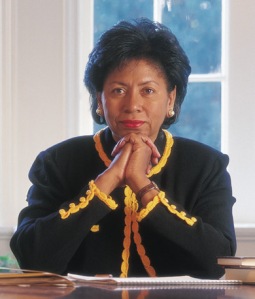House abolishes office of higher education
The House budget approved early this morning does away with the State Office of Higher Education, although it keeps the position of Commissioner of Higher Education. The change takes effect in 2014.
The budget also consolidates the boards of higher education and elementary and secondary education into a single board to be known as the Rhode Island Board of Education, effective at the start of 2013.
The new board is charged with figuring out how to administer the state’s public colleges and universities in the absence of an office of higher education. The work is to be distributed between the colleges and universities themselves and “appropriate state agencies.”
The budget article cites the need for better coordination between higher education and K-12 public schools in explaining the change, “the separate higher education system in the State of Rhode Island has not capitalized on opportunities and resources that have been made available due in part to a lack of coordination and efficiencies with elementary and secondary education,” the amended article states.
The State Board of Elementary and Secondary Education is slated to vote today on new rules for obtaining teacher credentials in Rhode Island.
The proposal sets minimum test score requirements and selects which tests will be used for teacher certification in several subject areas. During the public hearing process, some concerns were raised about score requirements and the tests themselves. More details on the comments plus responses from state education officials are available here.
The board will also be discussing and possibly voting on renewing the charter for the New England Laborer’s Career and Construction Academy Charter School in Cranston. Education Commissioner Deborah Gist has recommended giving the school a three year renewal rather than a full five years.
Objections to renewing the school’s charter include poor academic performance and a state review that showed problems in leadership and organization at the school.
State officials are suggesting that the board give the charter school three years to improve, noting that there is a new head of school and the state has set specific conditions for this and future charter renewals that address the problems found by the audit.
Education and the 2013 budget
With a vote expected Thursday on the state budget for the fiscal year beginning in July, here’s a look at some highlights for public schools and state colleges and universities.
Elementary and Secondary Education
- $660 million in general funding for public schools.
- $11 million for districts due for funding increases under the state’s new public school aid formula.
The formula takes things like number of students, median income and poverty into account, so these are districts that essentially have not been getting their fair share from the state. Winners include Woonsocket, and of course we’ve all been hearing about the $10 million deficit in the Woonsocket schools. This won’t plug that hole, but it should help ease at least some of the strain for districts like Woonsocket going forward.
- $1.4 million for Central Falls.
Lawmakers are basically delaying a plan to have Central Falls start paying part of the tab for its public schools. The state has been covering the cost of the Central Falls schools since the early 1990’s, but the new funding formula calls for the city to start making a local contribution. That’s not looking very likely with Central Falls still working to get out of bankruptcy, and their latest five-year plan including no funding for public schools. The budget proposal calls for an annual review of Central Falls finances, and for now, taxpayers will continue paying the school bills.
Higher Education
- No bond for joint University of Rhode Island-Rhode Island College nursing building.
This building was supposed to be a brand new facility for the two schools to share in Providence’s Jewelry District. What happened to the plan? Well, according to House Spokesman Larry Berman, the governor’s office and higher education officials never finalized the details on the nursing building, so there was no proposal for House lawmakers to consider.
URI officials say they are disappointed, and they think the nursing center would have been a real financial boost for both the state and the city of Providence — it would have been located in the area that city and state officials are trying to rename “the knowledge district” and turn into a hub for health care and biotech.
Some observers say not everyone at RIC supported the joint nursing facility. Michael Smith, the assistant to RIC’s president posted on his Facebook page that he thought the idea was ill conceived, calling it “a house of cards built on a foundation of ego, profit and a profound lack of understanding of public policy.”
The Facebook post has been removed. RIC says it does not represent the opinion of the college administration, and the school continues to be fully supportive of efforts to enhance nursing education.
- $50 million bond for building renovations at RIC, including the nursing school.
- $2 million for building projects at URI.
- Consolidate the Board of Regents for Elementary and Secondary Education and the Board of Governors for Higher Education.
This budget item calls for a merger of the state boards that oversee public colleges and universities and K-12 schools. The Department of Higher Education says the proposal would actually dissolve both of the existing boards by January 1st 2014. The governor would then have the power to appoint a brand new board to oversee all of public education in Rhode Island.
Under this proposal, the presidents of the state’s colleges and universities, along with Education Commissioner Deborah Gist, would report to the new board. The board could decide to consolidate the departments of higher education and elementary and secondary education, or it could keep them separate as they are now.
Lawmakers are also considering a new position of chancellor, who would oversee higher ed and public schools. That proposal appears to be in flux right now, but either way, this budget item could have a major impact on who will be in charge of public education in the Ocean State in the future.
High school graduations begin in RI
With high school graduation season kicking into high gear, I thought it was time to check back in with Celia Cabrera of Providence, a senior at E-Cubed Academy. I first met Cabrera more than a year ago, while working on RIPR’s series Providence: Mi Cuidad.
At that time, she was struggling to make it to class regularly because of financial and other family problems. She was also stressing out big time over minimum score requirements on standardized state tests.
Today, Cabrera is receiving her diploma on time, along with her classmates at E-Cubed. In our interview, she explains that she almost didn’t make it to graduation because she nearly failed a math class.
Cabrera dreams of becoming a pediatrician, but she’s not going straight to a four-year college. Instead, she’ll spend the next school year at the Community College of Rhode Island and then hope to transfer to Bay State College in Boston, where she was accepted this spring.
Providence could do a much better job teaching non-native English speakers, according to a new report from the Council of Great City Schools. The report finds expectations are not high enough in many of the city’s English language learning classrooms. It also says those students are not benefiting from broader efforts to improve Providence Public Schools.
Providence School officials say they will convene a task force to respond to the recommendations in the report, which was commissioned by the district.
Non native English speakers make up about 15 percent of the providence public school district or roughly 34-hundred students. They consistently perform at below-average levels on standardized state tests.
Board urged to review tuition waivers
Two members of the state board of higher education are calling for a re-assessment of a tuition waiver program for state college and university employees.
Michael Tikoian, Vice Chairman of the Board of Governors for Higher Education and committee member Amy Beretta say the waiver system may be inappropriate in the current financial climate.
“Recent public attention on and discussion of these tuition waivers has raised questions in our minds,” Beretta and Tikoian said in a written statement. “We believe it is our responsibility to conduct a full review of these policies, assess how they are applied at each institution and to prepare an objective report for consideration by the Board as well as the Governor’s office and the General Assembly.”
State colleges and universities have been under fire recently over rising tuition costs and proposed faculty raises. The Providence Journal reported earlier this month that the popularity of tuition waivers has been rising, pushing up the cost of the program from $4.6 million five years ago to $10.6 million last year.
How to help introverted students
Anyone who’s ever visited a classroom is familiar with the scenario: a quiet kid sits in the back of the room looking distant and not taking part in the discussion.
This presents a dilemma for teachers. Leave the student alone, or press for more classroom participation?
Some interesting new research suggests that shy or introverted students benefit from more time to reflect, not increasing pressure to participate. They may also be better at taking standardized tests than other students, according to Education Week.
Quiet students are more likely to be perceived as academically deficient by their teachers, but researchers say this is often a mischaracterization, and it’s concerning when you consider that as many as 50 percent of Americans are introverts, according to the Center for Applications of Psychological Type, in Florida.
Increasing use of technology in the classroom may provide one avenue for shy students to participate. Some researchers also suggest providing all students more time to work alone during class time.
Econ trumps biology at Brown
 Economics has surpassed the biological sciences as the most popular field at Brown University. Roughly 220 members of the undergraduate class of 2012 will receive economics degrees during commencement exercises this weekend.
Economics has surpassed the biological sciences as the most popular field at Brown University. Roughly 220 members of the undergraduate class of 2012 will receive economics degrees during commencement exercises this weekend.
Biological sciences are the second most popular degree with 200 concentrators, while international relations comes in a distant third.
Economics started to pick up steam at Brown in 2008, just after what many observers consider to be the start of the economic downturn. In the mid 1990’s and early 2000’s, the biological sciences were regularly the most popular undergraduate concentrations.
When it comes to job prospects for the class of 2012, Brown officials say the numbers are uncertain because many students are just beginning their job search. As of now, the single largest group of soon-to-be-graduates is going into education. That’s followed by banking and consulting, at least for those students who have managed to land jobs.
This week in education
- Mitt Romney details his plan for public education, which includes vouchers for parents who want to send their children to private schools.
- The Feds propose rules for a third round of Race to the Top grants. Individual school districts and groups of districts would be able to apply for the funding, and the program would shift focus to proposals that target individual help for students.
- Providence decides to return Hope High School to a block schedule just one year after scrapping it. The change to a six-period schedule angered students and teachers, but district officials said it was part of an effort to standardize high schools across the city. Now the district says three other high schools are designing overhauls, which means a standardized schedule is no longer realistic. The block schedule will allow Hope’s tech academy to offer a special networking certification, and the fine arts program also preferred the longer class periods.
- U.S. Education Secretary Arne Duncan meets with union leaders and school officials about their efforts to collaborate on school reforms. Rhode Island Education Commissioner Deborah Gist and Providence school and union officials were some of the local leaders at the conference.
- Ruth Simmons gives her final major speech as president of Brown University.
- Comedian Andy Samberg addresses graduating students at Harvard.
Simmons bids farewell to Brown
Outgoing Brown President Ruth Simmons is preparing her final address to the campus community. She’s slated to speak tomorrow at a baccalaureate ceremony as part of Brown’s graduation weekend.
Simmons steps down at the end of June after 11 years as Brown’s president. She’s widely credited with helping the university confront its history in the slave trade and expanding Brown’s faculty despite the economic recession, among other accomplishments.
The first African-American president of an Ivy League University, Simmons was extremely popular with students. She says she plans to stay on as a member of Brown’s faculty in the departments of Comparative Literature and Africana Studies.
Brown’s incoming president, Christina Hull Paxson of Princeton University, takes the reigns on July 1st.



